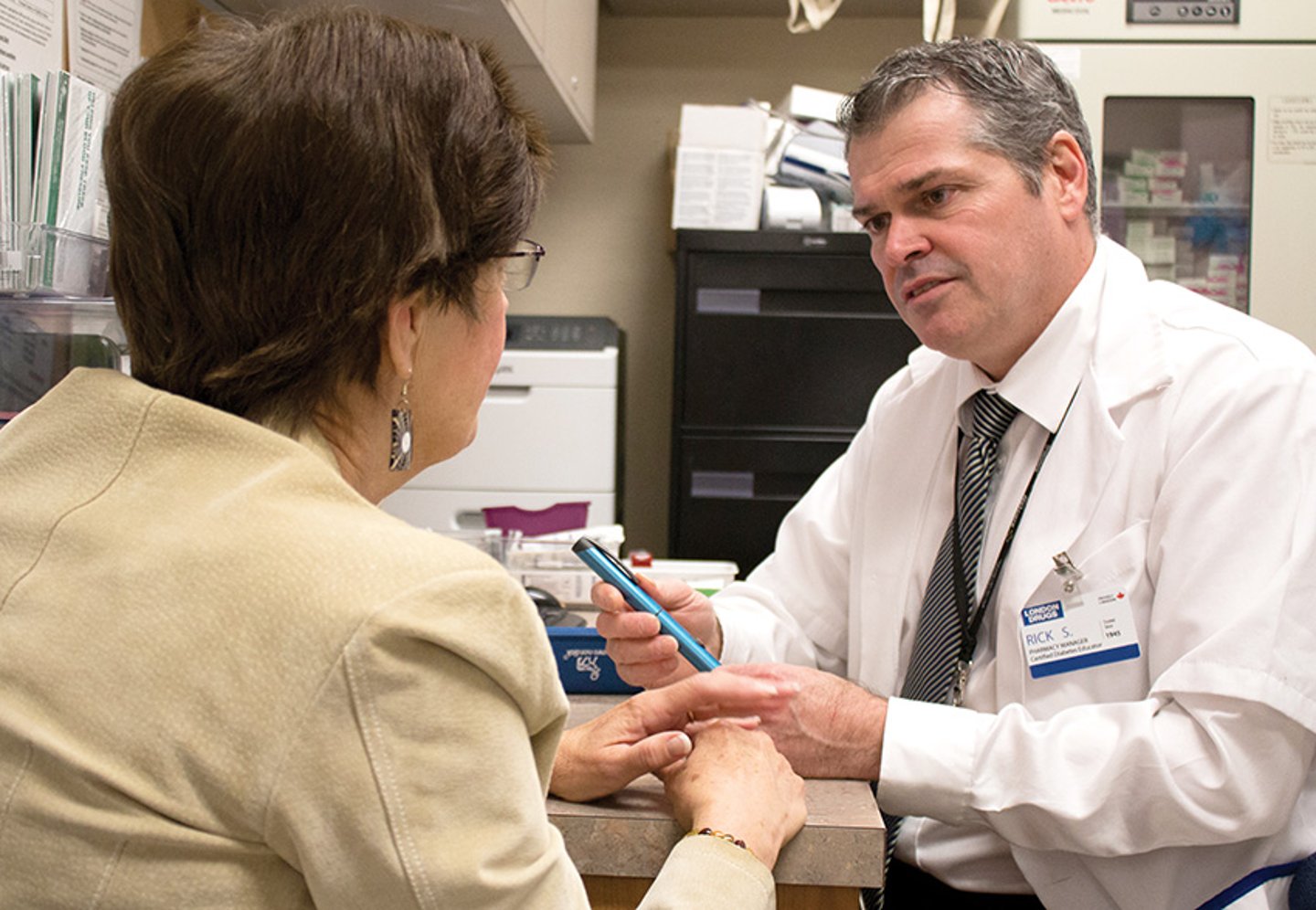Pharmacy U presenter Rick Siemens: Top 5 reasons pharmacy practice should evolve to use real-time glucose sensors
Rick Siemens will be presenting at Pharmacy U Toronto on the Top 5 reasons pharmacy practice should evolve to use real-time glucose sensors
When Rick Siemens from Lethbridge, graduated from the University of Alberta, he quickly realized that many of his patients with diabetes were struggling with their condition. He could see their frustration at not reaching targets and noted the shortage of diabetes support in the community. “I realized that it was the perfect opportunity for me. I had a high demand for diabetes care and the nurse educator in our community did not have sufficient time to address the needs of all of these patients in the community,” explains Rick.
“I made a conscious decision that I would work with other primary care providers in my community and start educating and counselling patients on strategies they could use to improve their diabetes management. Although I started doing this before I became a Certified Diabetes Educator (CDE), I realized that the designation not only would help in the care I could provide, but would also show other healthcare professionals the value of the service I was providing.”
Here are some of Rick’s tips and suggestions for all pharmacists involved in diabetes care:
Stop waiting and start doing
“You don’t have to wait until you have your CDE designation before improving diabetes care. I recommend pharmacists start talking to their patients and identify educational gaps in their care. This is what I did. Although I knew my limitations, I was able to work with these patients to increase both their knowledge and level of control.
Having a CDE designation makes it easier
“The CDE designation immediately identifies you as a clinician who can aid in the management of diabetes. I could see that as soon as I achieved my CDE status, physicians in the community were more interested in my recommendations and more willing to work collaboratively in diabetes management.”
Provide the right documentation
“When I started managing diabetes patients, my documentation to physicians was long, difficult to read, and, as a result, often ignored. Diabetes care requires collaboration with the patient’s team, and if you cannot document succinctly and recommend therapies, you will have difficulty practising. My current documentation explains what I want to do, why it needs to be done, and how I will monitor and keep the team abreast of any developments. Since making this small change, both collaboration and response rates from physicians have improved significantly.”
Learn more from roadblocks
“Most healthcare professionals are interested in their ‘wins,’ the patients where you have made an intervention that dramatically improved diabetes control. But I have learned more from the patients who did not easily improve. This forced me to continue to learn and develop new strategies, and made me a stronger educator.”
Invest your time and stick your neck out
“To become a good CDE, you need to invest your time not only in educating yourself but also in your daily practice. Although this time investment can seem overwhelming, I feel I have been paid back at least ten-fold in the difference I have made for my patients.”

